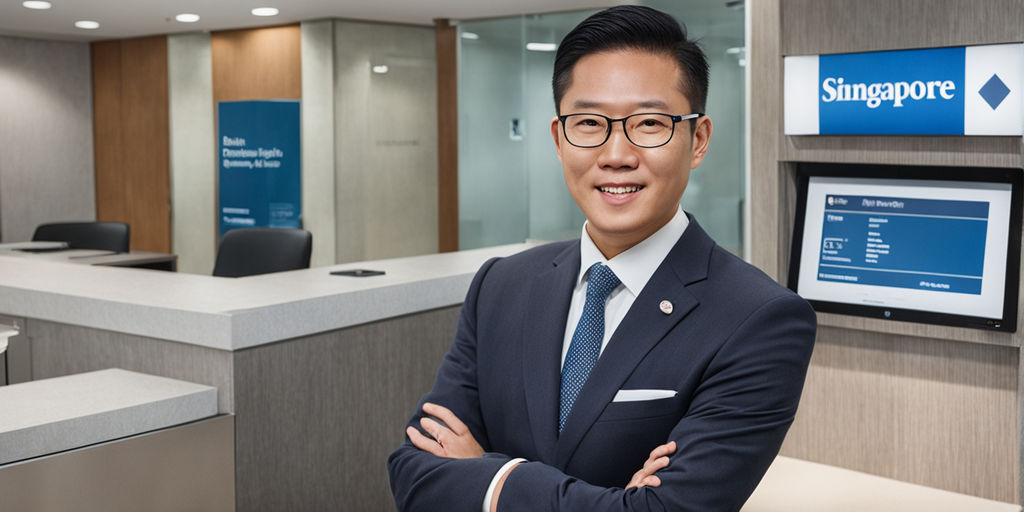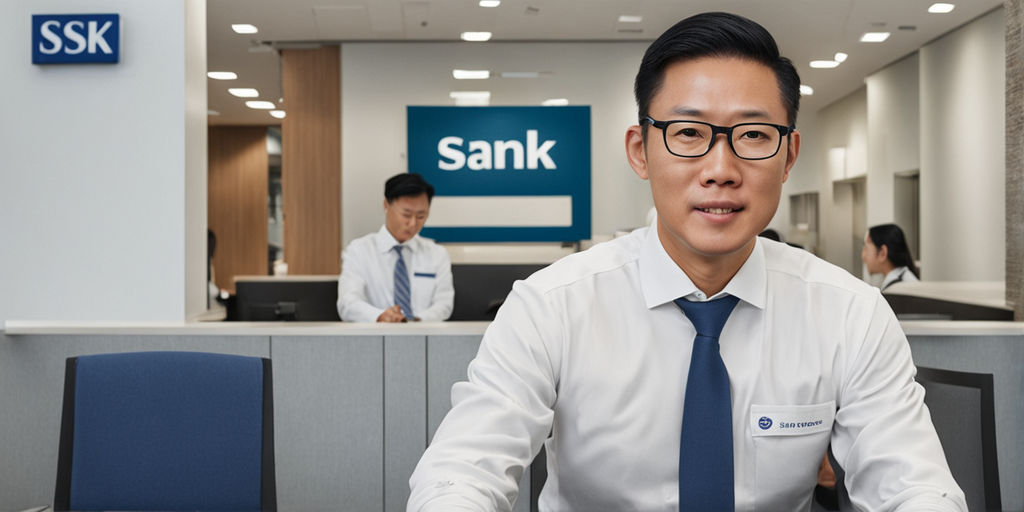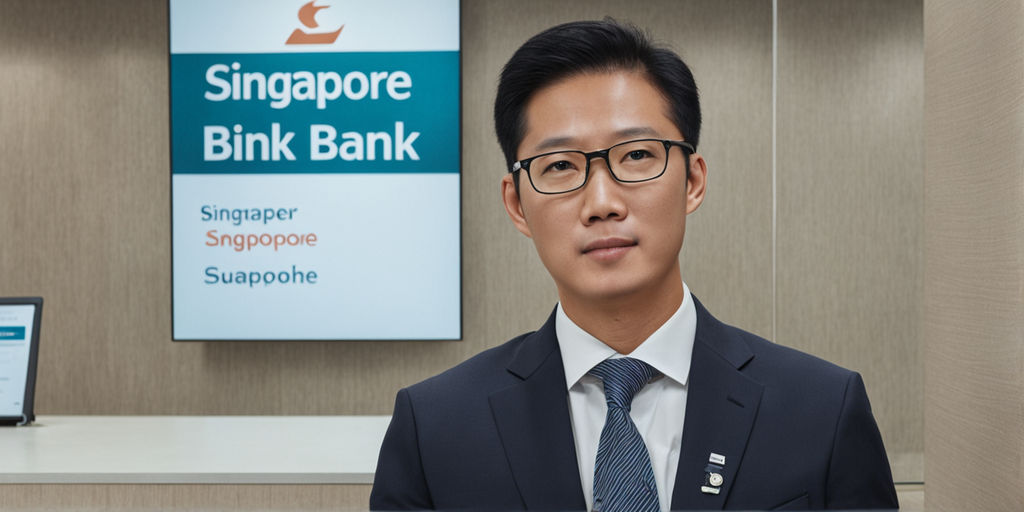
If you are planning to work in Singapore, it is important to understand the minimum qualifying salary requirements. The Ministry of Manpower (MOM) sets the minimum qualifying salary for various work passes, such as the Employment Pass (EP) and S Pass. These requirements ensure that foreign workers meet certain salary criteria and do not displace local workers.
The minimum qualifying salary for the EP and S Pass is benchmarked against the salaries of local workers in similar roles. This salary benchmark is known as the Local Qualifying Salary (LQS). The LQS is updated annually to reflect changes in the local job market and to ensure that foreign workers are not paid less than their local counterparts. It is important to note that the LQS requirement also applies to part-time local workers.
Key Takeaways
- The minimum qualifying salary for various work passes in Singapore is set by the Ministry of Manpower.
- The salary benchmark is known as the Local Qualifying Salary (LQS) and is updated annually.
- The LQS requirement applies to both full-time and part-time local workers.
Understanding the Employment Pass

If you are a foreign professional looking to work in Singapore, you will need to apply for an Employment Pass (EP). The EP is a work visa that allows foreign professionals to live and work in Singapore. The EP is issued by the Ministry of Manpower (MOM) and is subject to eligibility criteria.
Eligibility Criteria
To be eligible for an EP, you must meet the following criteria:
- You must have a job offer from a Singapore-based company.
- You must have a university degree or a professional qualification.
- You must have relevant work experience.
- You must be employed on a full-time basis.
Salary Thresholds
The salary threshold for EP holders depends on their age and qualifications. As of 1 September 2023, new EP candidates need to pass the points-based COMPASS in addition to meeting the EP qualifying salary. The minimum monthly salary for EP holders is as follows:
| Age | Qualification | Salary |
|---|---|---|
| < 30 | N/A | SGD 4,500 |
| 30+ | N/A | SGD 5,000 |
| N/A | P1 Pass | SGD 8,000 |
| N/A | P2 Pass | SGD 4,500 |
Types of Employment Passes
There are three types of EPs:
- P1 Pass: For foreign professionals who earn a fixed monthly salary of at least SGD 8,000.
- P2 Pass: For foreign professionals who earn a fixed monthly salary of at least SGD 4,500.
- Q1 Pass: For foreign professionals who earn a fixed monthly salary of at least SGD 3,600 and have a degree from a reputable university.
In conclusion, the EP is a work visa that allows foreign professionals to live and work in Singapore. To be eligible for an EP, you must have a job offer from a Singapore-based company, have a university degree or a professional qualification, have relevant work experience, and be employed on a full-time basis. The salary threshold for EP holders depends on their age and qualifications.
The S Pass Framework

If you are a foreign worker looking to work in Singapore, you may be eligible for an S Pass. The S Pass is a type of work visa that allows you to work in Singapore for up to two years, with the possibility of renewal. In this section, we will explore the eligibility and salary requirements for the S Pass.
Eligibility and Quotas
To be eligible for an S Pass, you must meet certain criteria. These criteria include earning a salary of at least $3,150 per month, which is benchmarked against the top one-third of the local associate professionals and technicians (APT) salaries by age [1]. You must also have a degree, diploma, or technical certificate, and have relevant work experience.
In addition to the eligibility criteria, there are also quotas in place for S Pass holders. The number of S Pass holders that a company can employ is capped at a certain percentage of its total workforce. This is known as the foreign worker quota [1]. The quota varies depending on the sector in which the company operates.
Salary Requirements for S Pass
The minimum qualifying salary for an S Pass has been raised in recent years. In February 2022, it was announced that the minimum qualifying salary for new S Pass applicants would be raised to S$3,000 from the current S$2,500 [2]. This change was made to ensure that S Pass holders are paid fairly and to prevent employers from hiring foreign workers at lower wages than their local counterparts.
It is important to note that older candidates may require a higher salary to qualify for an S Pass. The finalised qualifying salary will be announced closer to implementation date based on prevailing local APT wages at that time [1].
Overall, the S Pass framework is designed to ensure that foreign workers are paid fairly and that employers are not exploiting them. If you are considering working in Singapore, it is important to understand the eligibility and salary requirements for the S Pass.
[1] Eligibility for S Pass – Ministry of Manpower [2] Upcoming changes to S Pass eligibility – Ministry of Manpower
Sector-Specific Salary Criteria

If you are an employer in Singapore, you must pay your employees a minimum qualifying salary (LQS) that is set by the government. The LQS is determined based on the sector in which your company operates. Here are the sector-specific salary criteria that you need to know:
Financial Services Sector
If you are hiring an Employment Pass (EP) holder to work in the financial services sector, they must earn a minimum monthly salary of at least $5,500. This salary requirement increases progressively with age, up to $11,500 for EP holders aged 45 and above. If you are hiring an S Pass holder in the financial services sector, they must earn a minimum monthly salary of at least $3,500.
Construction and Process Sectors
If you are hiring an EP holder to work in the construction or process sectors, they must earn a minimum monthly salary of at least $3,900. This salary requirement increases progressively with age, up to $7,000 for EP holders aged 45 and above. If you are hiring an S Pass holder in the construction or process sectors, they must earn a minimum monthly salary of at least $2,400.
Retail and Other Sectors
If you are hiring an EP holder to work in the retail or other sectors, they must earn a minimum monthly salary of at least $3,600. This salary requirement increases progressively with age, up to $6,000 for EP holders aged 45 and above. If you are hiring an S Pass holder in the retail or other sectors, they must earn a minimum monthly salary of at least $2,500.
It is important to note that the LQS requirement applies to all local employees as well. If you hire a part-time local worker, they must earn at least the LQS to comply with the government’s regulations. Use the Self-Assessment Tool provided by the Ministry of Manpower to check your candidate’s eligibility before you apply for an S Pass or EP.
Local Employee Considerations

If you are an employer in Singapore, it is important to consider the Fair Consideration Framework when hiring local employees. This framework ensures that Singaporeans and Permanent Residents have fair access to job opportunities. As such, it is important to ensure that your job advertisements are open to all candidates, regardless of their nationality or race.
Fair Consideration Framework
Under the Fair Consideration Framework, employers are required to advertise job vacancies on the national Jobs Bank for at least 14 days before they can apply for an Employment Pass. This ensures that local candidates have a fair chance to apply for the job. Employers are also required to demonstrate that they have considered all candidates fairly before they can apply for an Employment Pass.
Local vs Foreign Employee Balance
It is also important to ensure that there is a balance between local and foreign employees in your company. The Local Qualifying Salary (LQS) is one way to ensure that local employees are employed meaningfully. The LQS is currently set at $1,400 and determines the number of local employees who can be used to calculate a firm’s Work Permit and S Pass quota entitlement.
By hiring more local employees, you can also benefit from the diversity of ideas and perspectives that they bring to the table. This can help your company to be more innovative and competitive in the long run.
Overall, it is important to consider the needs of both local and foreign employees when hiring in Singapore. By following the Fair Consideration Framework and ensuring a balance between local and foreign employees, you can create a more inclusive and diverse workplace that benefits everyone.
Application and Renewal Processes

New Applications
To apply for an S Pass or Employment Pass in Singapore, you must meet the minimum qualifying salary requirements set by the Ministry of Manpower. For new applications, the minimum qualifying salary for an S Pass is currently at least $3,150 per month, while for an Employment Pass, it is at least $5,000 per month.
To check if your candidate is eligible for an S Pass or Employment Pass, you can use the Self-Assessment Tool provided by the Ministry of Manpower. This tool will help you determine if your candidate meets the minimum qualifying salary requirements and other eligibility criteria.
Once you have confirmed that your candidate is eligible, you can proceed with the application process. You will need to submit the necessary documents and pay the relevant fees. The processing time for new applications is usually around three weeks.
Renewal Applications
If you are renewing an S Pass or Employment Pass, you will need to ensure that your employee continues to meet the minimum qualifying salary requirements. The minimum qualifying salary for S Pass renewals will be raised in three steps from 1 September 2023, while the minimum qualifying salary for Employment Pass renewals will be raised from 1 September 2023.
To renew an S Pass or Employment Pass, you will need to submit the necessary documents and pay the relevant fees. The processing time for renewal applications is usually around one week. It is important to note that if your employee does not meet the minimum qualifying salary requirements, their pass may not be renewed.
Overall, the application and renewal processes for S Pass and Employment Pass in Singapore are straightforward, provided that you meet the minimum qualifying salary requirements. By using the Self-Assessment Tool and ensuring that your employee continues to meet the requirements, you can help ensure a smooth process and avoid any delays or issues.
Regulatory and Policy Considerations

Quota Systems and Levies
When it comes to hiring foreign workers in Singapore, there are specific quota systems and levies that employers must adhere to. These regulations are in place to ensure that local workers are not displaced by foreign workers and to encourage employers to hire and train local workers. As an employer, you must comply with these regulations if you wish to hire foreign workers.
Dependency Ratio Ceiling
The Dependency Ratio Ceiling (DRC) is the maximum ratio of foreign workers to local workers that an employer can hire. The DRC varies depending on the industry and the skill level of the foreign worker. For example, in the construction industry, the DRC is 20% for basic-skilled workers and 15% for higher-skilled workers. If you exceed the DRC, you will have to pay a levy for each additional foreign worker you hire.
Progressive Wage Model
The Progressive Wage Model (PWM) is a wage system that aims to improve the wages and skills of low-wage workers in Singapore. Under the PWM, workers are paid a minimum wage that increases as they gain more experience and skills. The government has also introduced the Local Qualifying Salary (LQS) as part of the PWM, which sets a minimum wage for local workers. The LQS is currently set at $1,400 per month.
The PWM is part of the government’s efforts to reduce income inequality and improve the lives of low-wage workers. As an employer, you are encouraged to adopt the PWM and provide your workers with fair wages and opportunities for training and career advancement.
CPF Contributions
As an employer in Singapore, you are required to make Central Provident Fund (CPF) contributions for your employees. The CPF is a social security system that provides retirement, healthcare, and housing benefits for Singaporeans. The amount of CPF contributions you need to make depends on the age of your employee and their monthly salary.
In conclusion, there are several regulatory and policy considerations that employers in Singapore must be aware of when it comes to hiring and paying their workers. By complying with these regulations and adopting fair and progressive wage systems, you can help to improve the lives of your workers and contribute to a more equitable society.
Frequently Asked Questions
What’s the latest minimum salary required for an Employment Pass in Singapore?
As of 1 September 2022, the minimum salary required for an Employment Pass (EP) in Singapore is benchmarked against the top one-third of local professionals, managers, executives and technicians (PMETs) salaries by age, and ranges from $4,500 to $6,000 per month. Note that the actual salary requirement may vary depending on the candidate’s qualifications and experience.
How much do foreign workers need to earn to qualify for a work permit in 2024?
Foreign workers in Singapore need to earn at least the Local Qualifying Salary (LQS) to qualify for a Work Permit. As of 2024, the LQS is set at $1,400 per month for full-time employment. Employers must also ensure that they meet the foreign worker quota requirements set by the Ministry of Manpower (MOM).
What’s the current local qualifying salary for Singaporeans this year?
The current LQS for Singaporeans is also set at $1,400 per month for full-time employment. This means that employers must pay their local employees at least this amount to qualify for certain work passes and to meet the foreign worker quota requirements.
Has there been an update to the minimum salary for quota eligibility by MOM?
Yes, there has been an update to the minimum salary for quota eligibility by MOM. As of 1 September 2022, the minimum salary required for quota eligibility is benchmarked against the top one-third of local PMETs salaries by age, and ranges from $1,800 to $2,500 per month. Note that the actual salary requirement may vary depending on the industry and job type.
What are the latest salary requirements for S Pass holders in Singapore?
To be eligible for an S Pass in Singapore, a candidate must earn a fixed monthly salary of at least $3,150. The salary requirement is benchmarked against the top one-third of local associate professionals and technicians (APT) salaries by age.
Is there a set minimum wage that all workers in Singapore must receive in 2023?
No, there is no set minimum wage that all workers in Singapore must receive in 2023. However, the government has implemented measures such as the Progressive Wage Model (PWM) to help raise the wages of low-wage workers in certain sectors. The PWM sets out a clear career progression pathway and wage ladder for workers in certain sectors, such as cleaning, security, and landscaping.

